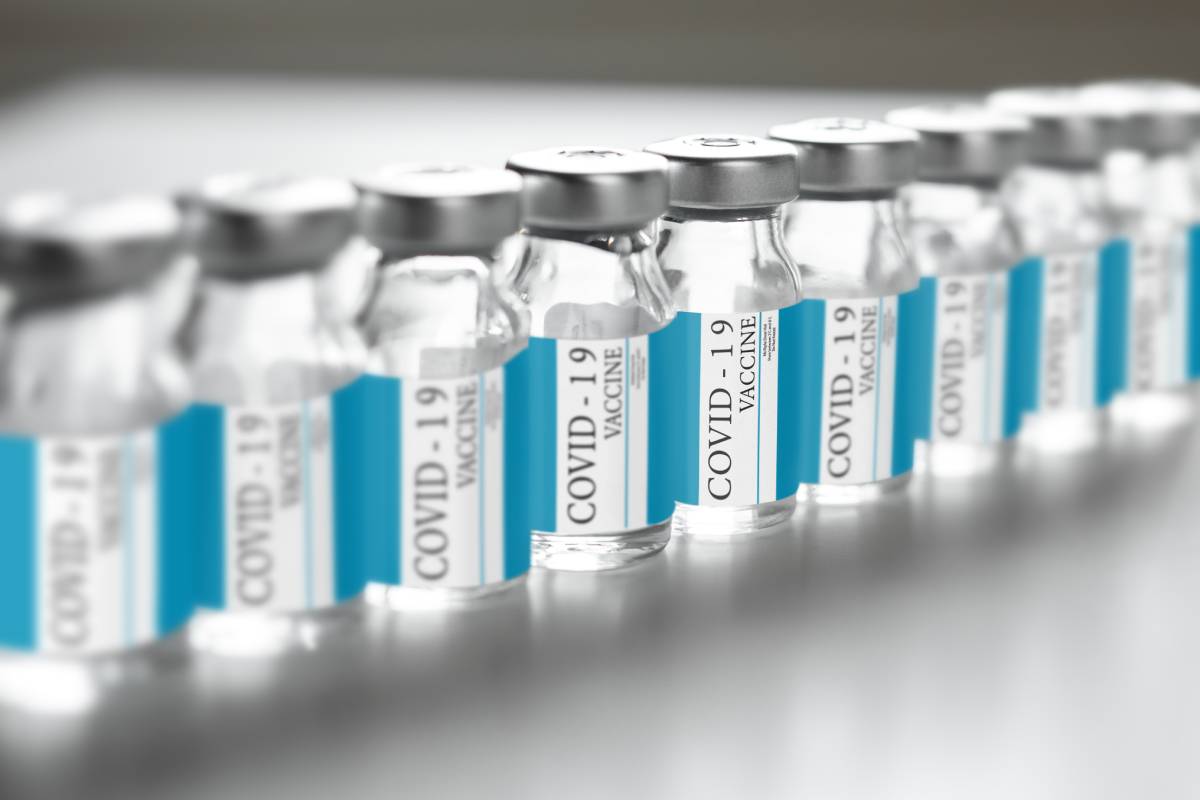Vaccines are essential tools in reducing the transmission and symptoms of many diseases. However, not all populations respond identically to vaccines, and not all populations are administered vaccines in the same way. For example, the FDA’s approval of the Pfizer-BioNTech COVID-19 vaccine contains a special provision allowing immunosuppressed patients to receive a third dose, one more than the usual regimen [1]. Immunosuppressed patients are those with weakened immune systems, due to medication, surgery, or certain medical conditions, and as a result have a different response to receiving a vaccine. Medical research has investigated how immunosuppressed patients respond to a variety of vaccines.
Patients with recent organ transplants might take medication that suppresses the immune system. In one study, heart transplant patients taking cyclosporine exhibited a typical response to the pneumococcal vaccine, and they built appropriate levels of immunity. In contrast, the influenza vaccine proved significantly less effective [6]. In another study, kidney transplant patients taking azathioprine or mycophenolate mofetil (MMF) responded well to influenza A vaccines but not to influenza B vaccines. Additionally, MMF decreased the immune response more so than azathioprine [7]. These results highlight the complexities of vaccine response among immunosuppressed populations.
Another cause of immunosuppression is rheumatoid arthritis medication, specifically tumor necrosis factor (TNF) blockers and methotrexate. In a study of 53 patients taking these medications, the hepatitis A vaccine induced just 33% seroprotection after six months. The results improved considerably when a second dose was administered at a six-month interval, increasing seroprotection to 72% [2]. In this scenario, a two-dose regimen may prove more beneficial for immunosuppressed patients. However, not all vaccines should be taken multiple times, and clinical experience or extensive research should inform any multi-dose regimens.
Inflammatory bowel disease (IBD) medication can also suppress the immune system. This medication might include TNF blockers and various immunomodulators. In two different studies, researchers measured how IBD patients responded to the pneumococcal vaccine. Patients taking TNF blockers in combination with other immunomodulators (e.g. azathioprine) exhibited a much lower vaccine response than other IBD patients and a healthy control group [3][4]. Both studies recommended that the pneumococcal vaccine be administered before the initiation of these medications. In this way, patients can obtain the necessary immune response. Separately, a meta-analysis of vaccine response in IBD patients reinforces these trends across pneumococcal, hepatitis, and influenza vaccines. Where feasible, the researchers recommend a patient-by-patient analysis using titers, which determine the need for boosters or additional treatments [5].
In summary, vaccine response in immunosuppressed patients depends not only on the vaccine, but also on the patient’s cause of immunosuppression. These complex interactions warrant further study, especially on the forefront of vaccine technology. One notable example is the use of new mRNA technology in the Pfizer-BioNTech and Moderna vaccines for COVID-19. Despite assessments that the benefits of such vaccines outweigh the risk for most patients, immunosuppressed patients were excluded from vaccine trials [8]. Beyond the COVID-19 vaccine, rates of vaccine hesitancy remain high among immunosuppressed patients, despite ample research that inactivated vaccines rarely cause adverse side effects, even among immunosuppressed patients [5][6][7][9]. These findings suggest that immunosuppressed patients remain insufficiently studied in the research literature and in clinical practice. To ensure the best possible outcomes for immunosuppressed patients, medical practitioners should study credible research findings, but ultimately move forward based on relevant clinical factors for each individual patient.
References
[1] Fact Sheet for Healthcare Providers Administering Vaccine (Vaccination Providers). Food and Drug Administration. Retrieved from https://www.fda.gov/media/144413/download.
[2] H. H. Askling, et al. Hepatitis A Vaccine for Immunosuppressed Patients with Rheumatoid Arthritis: A Prospective, Open-label, Multi-centre Study. Travel Medicine and Infectious Disease 2014; 12: 2. DOI:10.1016/j.tmaid.2014.01.005.
[3] G. Y. Melmed, et al. Immunosuppression Impairs Response to Pneumococcal Polysaccharide Vaccination in Patients with Inflammatory Bowel Disease. American Journal of Gastroenterology 2010; 105: 1. DOI:10.1038/ajg.2009.523.
[4] G. Fiorino, et al. Effects of Immunosuppression on Immune Response to Pneumococcal Vaccine in Inflammatory Bowel Disease: A Prospective Study. Inflammatory Bowel Diseases 2012; 18: 6. DOI:10.1002/ibd.21800.
[5] D. L. Nguyen, et al. Effect of Immunosuppressive Therapies for the Treatment of Inflammatory Bowel Disease on Response to Routine Vaccinations: A Meta-Analysis. Digestive Diseases and Sciences 2015; 60. DOI:10.1007/s10620-015-3631-y.
[6] T. J. Dengler, et al. Differential Immune Response to Influenza and Pneumococcal Vaccination in Immunosuppressed Patients After Heart Transplantation. Transplantation 1998; 66: 10. DOI:10.1097/00007890-199811270-00014.
[7] M. J. C. Salles, et al. Influenza Virus Vaccination in Kidney Transplant Recipients: Serum Antibody Response to Different Immunosuppressive Drugs. Clinical Transplantation 2010; 24. DOI:10.1111/j.1399-0012.2009.01095.x.
[8] K. Bechman, et al. The COVID-19 Vaccine Landscape: What a Rheumatologist Needs to Know. The Journal of Rheumatology 2021. DOI:10.3899/jrheum.210106.
[9] K. A. Papp, et al. Vaccination Guidelines for Patients with Immune-Mediated Disorders on Immunosuppressive Therapies. Journal of Cutaneous Medicine and Surgery 2019; 23: 1. DOI:10.1177/1203475418811335.

